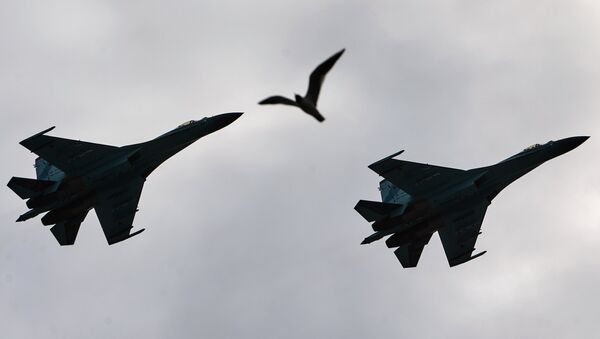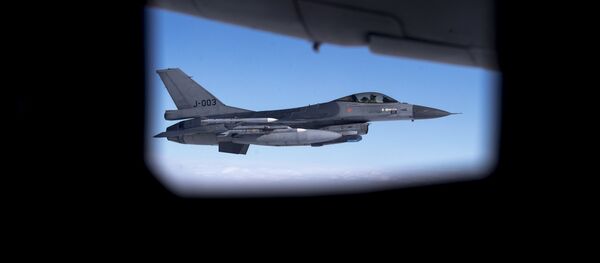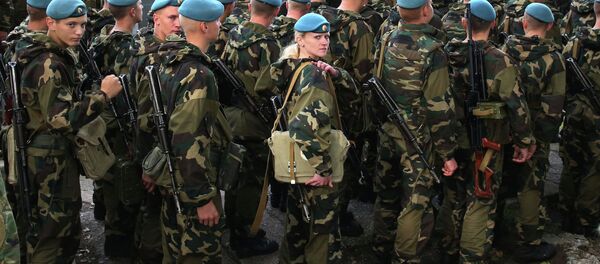This week, the Russian Defense Ministry confirmed that air force fighter jets had conducted a minimum of six intercepts against foreign reconnaissance planes on Russia's borders in the past week. The week before that, at least four more NATO planes were intercepted patrolling near the Russian frontier.
These intercepts, Kharlamov wrote, were carried out in a calm, routine and matter of fact manner. The Russian aircraft were sent into the skies, at a minimum to demonstrate their presence, and as a maximum, to shoo away the uninvited guests.
And that is what makes NATO's claims against Russia so paradoxical, Kharlamov added. This week, ahead of Thursday's NATO-Russia Council meeting in Brussels, alliance officials complained about Russian pilots' "unsafe behavior" during their interception missions, and vowed to press Moscow to provide NATO with flight plans, force Russian pilots to respond to air traffic control and/or identify themselves using transponders, etc.
The paradox of NATO's claims, according to Kharlamov, lies in the fact that the alliance has made these accusations against Russian pilots without taking account of one crucial fact: that "all flights by the Russian Aerospace Forces are carried out in strict accordance with international rules for the use of airspace over neutral waters."
Besides, "Russian pilots do not violate the borders of other countries. When it comes to controlling its own territory, Russia has the right to decide independently, without regard to irritated NATO officials, on how to do so," the observer added.
"Some experts even see [this behavior] as a clear indication of NATO's preparations for aggression against Russia," Kharlamov wrote. "This is probably not the case. After all, the West likes to flex its military muscles, and not just to use them. Nevertheless, the statistics confirm that Alliance aerial reconnaissance activity over Russia's western borders have increased sharply in the last month. One of the most resonant incidents occurred over neutral waters in the Baltic Sea, when a NATO fighter approached the plane of Russian Defense Minister Sergei Shoigu, who was traveling to Kaliningrad."
As far as Russia's intercepts of NATO planes was concerned, it was curious what alliance officials had expected, Kharlamov wrote. "Did they hope to conduct mass reconnaissance, and strengthen their military contingent in Poland and the Baltic states, all without any reaction from Moscow?"



